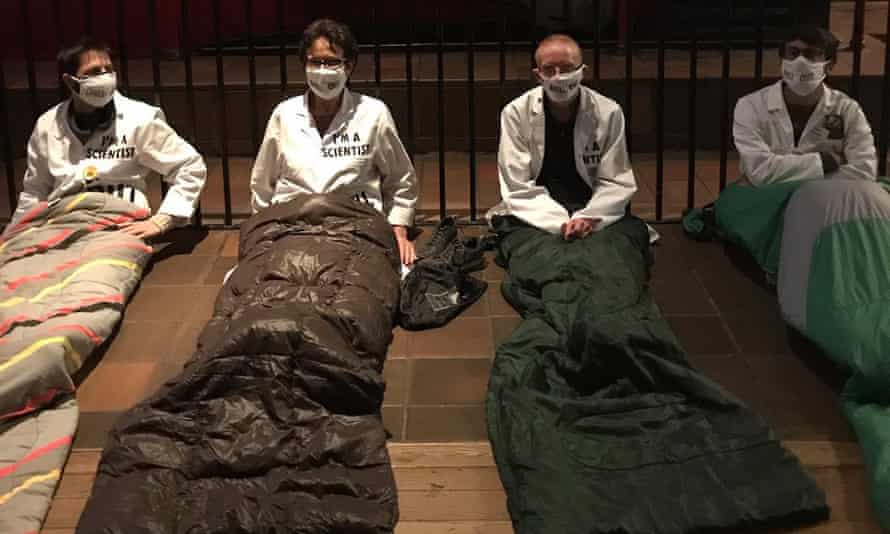
After orchestrating an occupation of the Science Museum in London, a band of activists were threatened with arrest last night (Saturday 19 June 2021), but have affirmed that they’ll continue their action today.
Due to the museum’s decision to receive sponsorship from fossil fuel giant Shell, the London branch of the UK Student Climate Network (UKSCN) coordinated the protest.
The protestors dangled a banner saying “Drop Shell Sponsorship” from one of the museum’s balconies.
The museum in South Kensington has collaborated with Shell to finance its Our Future Planet exhibition about carbon capture and storage and nature-based solutions to climate change.
Other activists gave speeches, which were livestreamed on social media, about the corporation and climate change, meanwhile some displayed anti-Shell posters.
They had arranged to occupy the site all night, however, at approximately 9pm, police officers threatened to arrest activists if they didn’t move out of the space, according to UKSCN.
In response, the organisation tweeted: “The police protect fossil fuel interests. We know exactly what side they are on.”
The activists reported that over 30 police officers had been issued to deal with the 20 protestors.
Alongside the occupation, in an open letter to the museum, released on UKSCN’s website, the group has called out Shell’s record of perpetrating “human rights violations” in the Global South.
The letter goes on to say: “Solving the climate crisis goes beyond cutting carbon emissions; this must be a fight for climate justice. We stand alongside the activists in the Global South who face violence from fossil fuel corporations, such as Shell, and the communities who are and will be hit hardest by climate change, despite contributing the least to cause it.”

It’s important to note that capitalism has flourished from the dispossession and total destruction of land since its inception.
The brutal social transformation that gave birth to capitalism crushed the traditional ties that existed between humans and nature. The coercive expropriation of peasants alienated humans from nature, and led to a “metabolic rift” as Marx explained it, starting a process that has steered humanity to the brink of planetary destruction.
The enclosures in England stopped the collective use of land, and transformed both labourers and nature into inputs for agricultural and industrial production. Marx said: “for the first time, nature becomes purely an object for humankind, purely a matter of utility; ceases to be recognised as a power for itself; and the theoretical discovery of its autonomous laws appears merely as an object of consumption or as a means of production.”
The subjugation of nature to man, Marx and Engels mentioned in many of their writings, has deadly effects to both humankind and nature. As Engels explained: “Thus at every step we are reminded that we by no means rule over nature like a conqueror over a foreign people, like someone standing outside nature – but that we, with flesh, blood and brain, belong to nature, and exist in its midst, and that all our mastery of it consists in the fact that we have the advantage over all other creatures of being able to learn its laws and apply them correctly.”
Fossil fuels, which became the leading form of energy during the Industrial Revolution, now command the global economy, and threaten the world’s survival. This proves that capitalism thrives as a world system on the continued conquering of both humanity and the earth, subjugating both to its profit motive.
Under socialism, rather than the compulsion to produce an excess of commodities to accumulate more profits, the purpose of production would be use, rather than profit. Human need would therefore drive decision-making, and would induce advances in technology and research for ecologically sustainable production.
This is the alternative that the natural world and humanity desperately needs to survive.
Georgina Andrews



